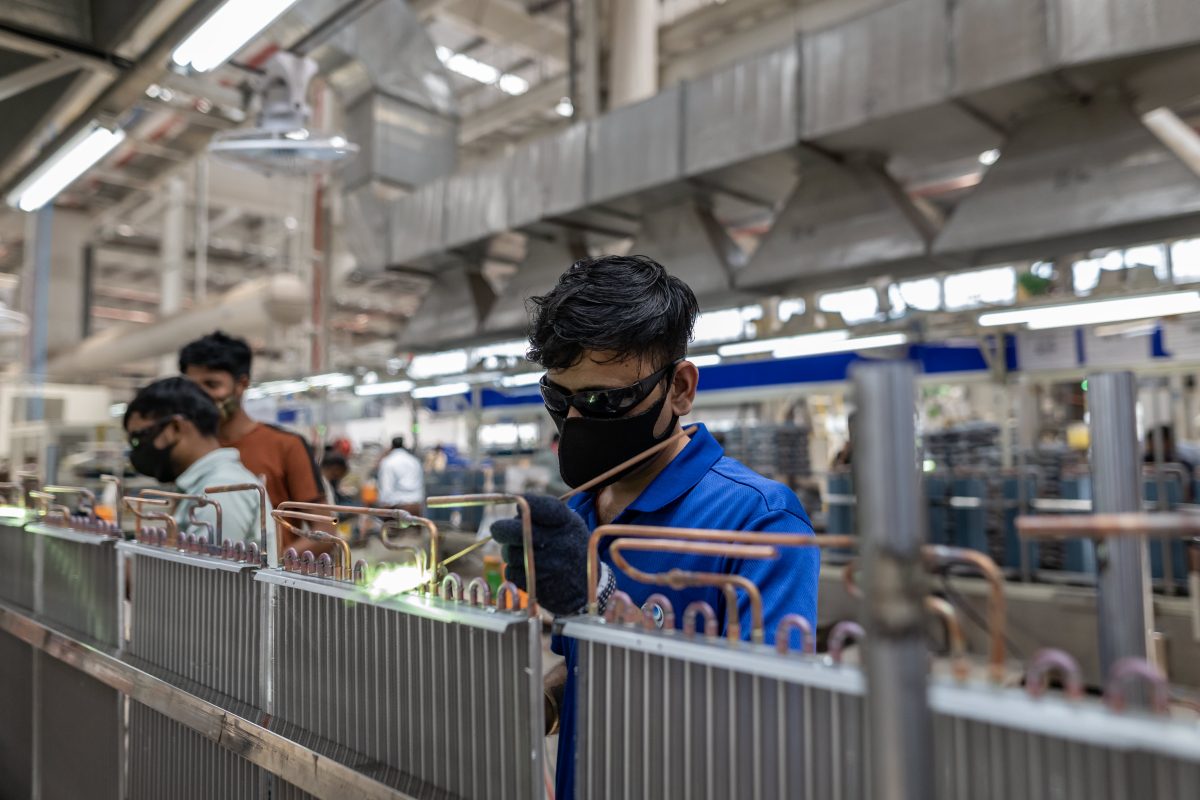Formalisation on India’s Labor Market: A Comprehensive Analysis

Formalising India’s labor to make them professional workers. It opens up new opportunities for other workers, streamlines their lives in terms of a better work life, better salary, positive environment and their growth and development.
India produces a huge number of working-age population that offers a great chance for the country to grow and develop its economy. To make the most of this population advantage, we need to create formal jobs that are safe, boost productivity, and pay well. Right now, areas like farming, construction, wholesale and retail sales, manufacturing, and transport make up most of India’s informal economy.
These sectors account for 87% of all unofficial jobs in the country. The NITI Aayog, in its voluntary reporting of Sustainable Development Goals, has stated that approximately 80% of India’s workers are employed in the unorganised sector and more than 90% in informal employment.
What is The Difference Between Formal and Informal Sectors?
India’s unorganised sector workforce has been at the forefront of driving the economy’s rampant growth prior to the onset of COVID-19, however, despite increased economic prosperity exploitation, poverty and lack of basic necessities are still commonplace. The total number of informal workers participating in the workforce is estimated to be around 93% of the labor component in the country according to the economic survey of 2018-19. The ‘Report of the Committee on Unorganised Sector Statistics’ of the National Statistical Commission (NSC), 2012 also pegs this number at above 90%.
Other estimates peg the total workforce in India at between 450-500 million, of which about 63 million do not receive a regular payment, while around 110 million are employed for periods below 6 months and approximately 26 million are engaged in part-time jobs. There is also a shift in the nature of employment with a sharp decrease in agricultural employment with a corresponding spike in non-agricultural employment.
Around 88 million people or approximately 20% of the labor workforce are engaged as small traders, hawkers, street vendors and as daily wage earners. Self-employed entrepreneurs constitute around 14% of the workforce meaning that as many as 215 million workers may be considered self-employed.
The above statistics reveal two troubling issues with the way the informal sector is being managed in the country. Firstly, we lack accurate and up-to-date data on the composition, nature of employment and the contribution to overall economic development by informal workers. Secondly, the lack of reliable statistics makes policy formulation and enforcement of existing labor laws difficult, especially those relating to social security.
This is problematic because most social security schemes either ignore this class of workers entirely or fail to adequately provide benefits due to practical difficulties like identification of informal workers, transfer of funds and setting up official machinery at the grassroots level.
Formal Employment Can Be Achieved By Addressing These 3 Critical Areas In Salaries:
The government has launched several initiatives aimed at transitioning to a more formal labor market, including but not limited to— facilitating faster structural transformation and making the manufacturing sector the new growth hub under the ‘Make in India’ initiative; ramping up investments in connectivity, digital, logistics, and other infrastructure; nourishing MSMEs to enhance their productivity, competitiveness, and sustainability to create more jobs; reducing the cost of capital and implementing regulatory reforms to promote ease of doing business; enhancing the employability of youth and informal economy workers, alongside increasing the focus on fostering entrepreneurship, innovation, and startups.
Formalisation of The Blue-Collar Sector
Formalisation of the blue-collar sector assumes prime importance for the stability and growth of economies. Formality will help blue-collar workers in a number of ways, such as the following:
Government Efforts
There have been various initiatives by the government toward formalisation of the labor market:
One of the regulatory reforms has to be in the line of reducing the cost of capital and restructuring regulations towards ease of doing business. Simplification of business regulations, reduction in compliance costs and incentives for formalisation can make more businesses move from the informal to the formal sector.
In our efforts to ride through these reformation times, TrueTym has been at the forefront of formalising India’s Labour Market. The formalisation of the labor market is not merely a pathway to economic growth; it ensures social justice, promotes equity, and improves living standards for millions of workers.
Narrowing salary disparities, implementing strategic initiatives, and fostering an enabling environment for business and innovation will secure a prosperous future for all. Formalising India’s labor market is a critical step toward harnessing the demographic dividend and ensuring sustainable development.



